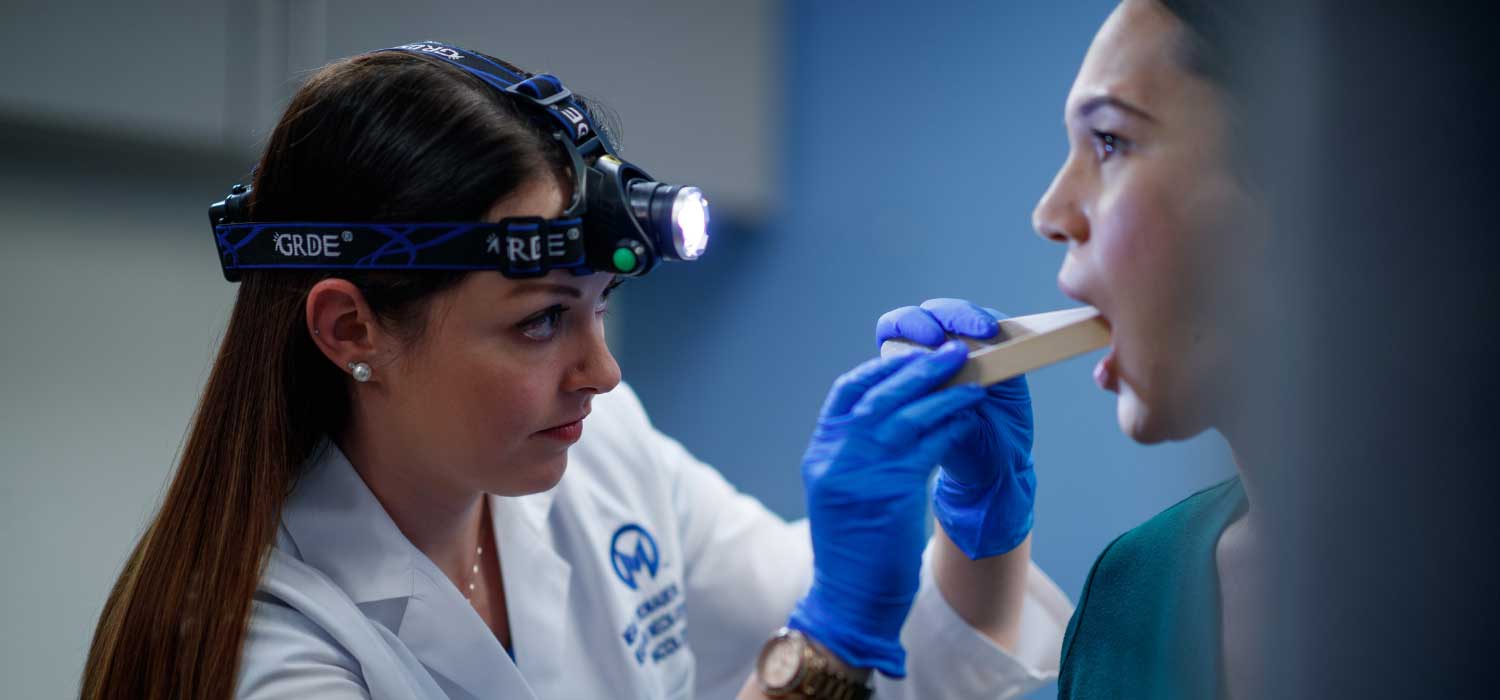Oral Cavity or Throat Cancer Treatment
 Treatment strategies for oral cavity and throat cancer can vary, depending on how early the cancer is diagnosed and whether or not it has spread to surrounding tissues and organs. Individuals with early stage oral cavity or throat cancer may be treated using surgery or radiation therapy, while more advanced cancers may require a combination of treatments. Moffitt is a trusted name in head and neck and endocrine oncology and is rated #37 nationally in the Best Hospitals for Ear, Nose & Throat category by U.S. News & World Report in 2020.
Treatment strategies for oral cavity and throat cancer can vary, depending on how early the cancer is diagnosed and whether or not it has spread to surrounding tissues and organs. Individuals with early stage oral cavity or throat cancer may be treated using surgery or radiation therapy, while more advanced cancers may require a combination of treatments. Moffitt is a trusted name in head and neck and endocrine oncology and is rated #37 nationally in the Best Hospitals for Ear, Nose & Throat category by U.S. News & World Report in 2020.
Moffitt Cancer Center’s Head and Neck Oncology Program enlists a multispecialty team of cancer experts to provide a comprehensive program of patient treatment and care. We provide screening, diagnostic and treatment services, as well as long-term follow-up care at Moffitt and in collaboration with the patient’s primary physician. We have been designated a Comprehensive Cancer Center by the National Cancer Institute – the only cancer center based in Florida to have received this designation.
Some of the treatment options for oral cavity and throat cancer include:
- Therapeutic and reconstructive surgery – The aim of this treatment is to achieve maximum rehabilitation. Our surgical oncologists do everything they can to spare the voice of patients with laryngeal and pharyngeal cancers. Highly advanced surgical techniques are available for tumors that are caught early, and can often minimize the prevalence of the condition.
- Skull base surgery – An integrated team of medical professionals – including neurosurgeons, head and neck surgeons, medical oncologists and radiation oncologists – work together to remove tumors that have invaded the skull base. This team utilizes image-guided surgical techniques and monitoring of nerve function to minimize the risk of damaging the vital neurological structures of the skull base. Our team also performs highly advanced endoscopic sinus and skull base surgery using Brain LAB image guidance.
- Radiation oncology and chemotherapy – Traditional external beam therapy, intensity modulated radiation therapy (IMRT) and brachytherapy may be used individually or in conjunction with chemotherapy to destroy existing cancer cells or prevent future cells from dividing and multiplying.

Once these or other treatments are used to directly address the oral cavity or throat cancer, other strategies may be implemented to return the patient to a vibrant life. For instance, speech and swallowing rehabilitation may be utilized to adapt to changes in the throat and larynx. A maxillofacial prosthodontist can provide a prosthetic device for the mouth, eye, nose, ear or dental facial region to help the patient return to normal function. If necessary, a swallowing prosthesis can also be designed to help the patient restore the ability to swallow.
To consult with our Head and Neck Oncology Program about your treatment options for oral cavity or throat cancer, contact Moffitt Cancer Center by calling 1-888-663-3488 or by filling out our online patient registration form. You never need a referral to discuss your case with one of our highly specialized oncologists.
Helpful Links:
Treatment
